Parasites (again) a health hazard
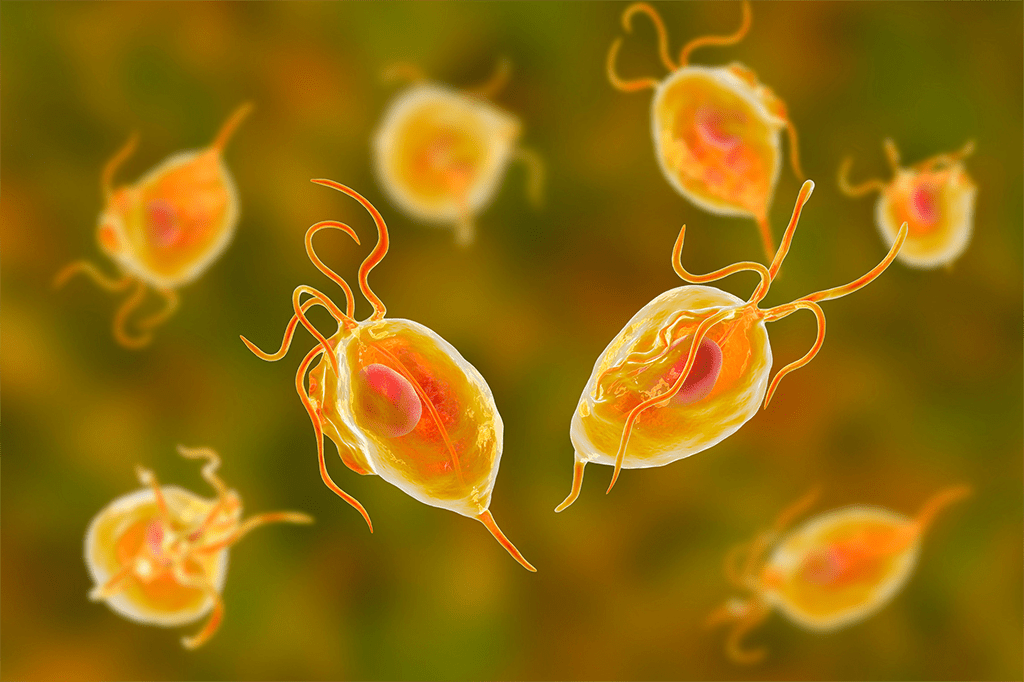
Many people think that parasites occur only in distant countries, but nothing could be further from the truth. In this article, we explain what parasites are, why they are much more common today, including in the Netherlands, and how you can find out if you (or your client) have them.
Definition of a parasite
In its broadest sense, the term "parasite" is used for any living creature that takes advantage of another living creature for its own survival, putting the other life form at a disadvantage.
In (medical-therapeutic) practice, a much more concrete and therefore much more applicable definition is used, namely: a parasite is a single- or multicellular, nucleus-holding, animal organism that lives at the expense of a human or animal host. Thus, in this definition, a parasite is not a virus or bacteria.
Because parasites survive at the expense of the host, it suffers. These disadvantages often manifest themselves in the form of various diseases. It is also possible for parasites to move from an animal host to a human host. This is called a zoonotic parasite.
Consequences of parasitic infection
Parasitic infections are responsible for a wide range of symptoms such as: syringe diarrhea, meteorism, projectile vomiting, subcutaneous growth and mobility, body excretion through throat, eye and skin and lastly, high fever and comatose states.
As an example, Figure 1a shows a whipworm (Trichiuris trichiura), Figure 1b shows the eggs of this parasite. This parasite is responsible for diarrhea, anemia and sometimes rectal prolapse ("protrusion").
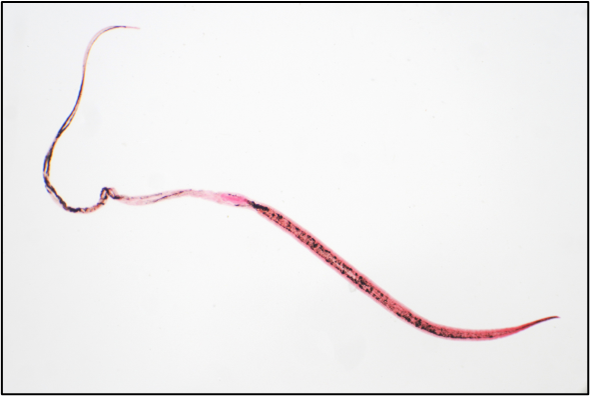
Figure 1a. Microscopic recording whipworm
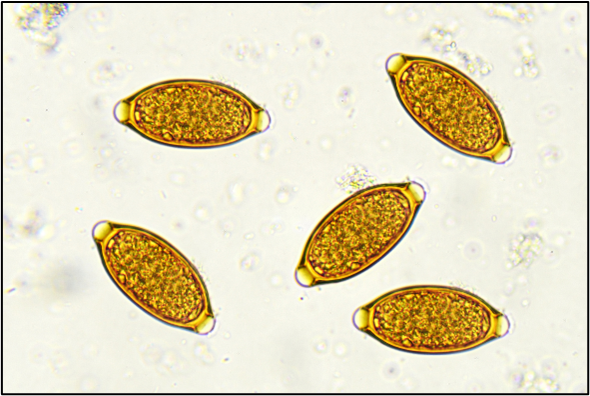
Figure 1b. Microscopic recording whipworm eggs.
Parasites are not just a problem for faraway countries
Parasite infections have traditionally been associated with poor sanitary conditions (especially contaminated food) often combined with poor defenses due to malnutrition or other diseases. To this day, parasitic diseases are a major health threat worldwide.
One of the most well-known parasites is Plasmodium malariae, the causative agent of malaria. As is well known, worldwide, this is one of the most common diseases, from which at least 409000 people died in 2019 alone [https://www.who.int/news-room/fact-sheets/detail/malaria].
In the traditional medical view, parasitic infections are primarily a Third World problem. Unfortunately, today the situation has changed quite a bit; it is no longer a distant problem.
Parasitic infections are relatively common in the Netherlands [www.parasitologie.nl/medische-parasitologie][article in Dutch]. Much more than previously believed.
In the remainder of this paper, we will limit ourselves to those parasites that occur in the human gastrointestinal tract. Parasites in other organ systems will be further disregarded.
Why the risk of parasitic infections is increasing, including in the Netherlands
Here are three reasons why parasitic diseases have begun a second childhood:
- People are much more mobile than before. We now vacation in every corner of the world. In many of those (sub)tropical vacation resorts, the risk of parasitic infection is much higher than in the more temperate zones of the earth.
- Earth's average temperature is rising. While this fact has and is going to have very significant effects on economy and society, a direct consequence is the expansion of (sub)tropical diseases to areas that were previously cooler.
- People are eating more and more "organic. This mainly involves increased amounts of vegetables produced without the use of pesticides. Although consumption of this type of food has great health benefits, this organic vegetable production is also very vulnerable to parasite contamination. Many vegetable gardens and vegetable farms are frequented by animals. Many of these animals (mainly dogs, cats, birds, mice and rats) carry parasites in their intestinal tracts, which get into the soil and onto the growing vegetables via feces. Many of these parasites are zoonotic and can make people sick. This happens especially in hobby or artisanal vegetable production (kitchen gardens!) where mandatory flushing of harvested plants is not always done adequately. The parasites that can remain on poorly or unwashed vegetables pose a real danger to consumer health. (Figure 2)
- Using ditch water to irrigate organically grown vegetables. This is basically a variation of what is described above. Waterfowl also carry parasites in their intestinal tract. These parasites can enter ditch water through feces. Especially in summer, when the water is warm, (eggs and cysts of) these parasites can survive in the water for a long time.
Although exact figures for the Netherlands are not available from the National Institute for Public Health and the Environment (RIVM), it may be clear that the risk of parasitic infections has increased and is likely to increase further.

Figure 2: Organic vegetables: healthy or dangerous?
Parasite research, a brief introduction
Parasite testing has been performed in medical laboratories for decades. Traditionally with classical microscopic methods and for some time more advanced DNA detection techniques have also been applied.
Traditional microscopic laboratory technique can handle a wide variety, but it is not as specific. Advanced DNA methods are less diverse than microscopy, but more specific.
Recently, a very advanced alternative has become available, which consists of a combination of microscopy and DNA detection technology. This is the Fluorescence in situ Hybridization or FISH. We are the only one in the Netherlands to offer this analysis routinely.
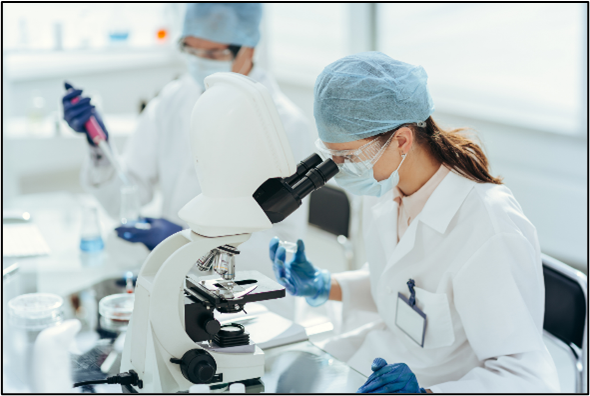
Figure 3 A parasitological analyst in action
Why test for parasites at NL-Lab?
Choosing NL-Lab has several distinct advantages:
- NL-Lab uses advanced technology that combines the best of classical and modern methods. As mentioned above, this technology has the analytical bandwidth of classical microscopy and the specificity of modern DNA detection methods.
- NL-Lab analyzes for 16 species of parasites. This is the most comprehensive test package, compared to the offerings of other private laboratories.
- NL-Lab is one of the most economical providers. At NL-Lab, the interests of the practitioner and the patient are paramount, also in terms of affordability.
- At NL-Lab you are not a number. The test result can be discussed free of charge. Our microbiological experts are available for questions during the working week.
- Analyses from NL-Lab are available to physicians, therapists and individuals. Thus, you do not need a referral .
All in all, five clear reasons to choose NL-Lab's comprehensive parasite research.
I am interested in a parasite test
In the Netherlands it was customary for a parasite examination to be requested by the (general) physician. Recently, doctors, therapists and private individuals alike can go to NL-Lab.
Are you a physician or therapist?
Register here with no obligation. After registration you can request test kits. We will then send you, free of charge, a number of test kits that you can give to your client during consultation hours. On request we will also send test kits directly to your client free of charge.
Are you a private citizen?
You can order the parasite study directly from our web shop. You will then receive a package with all accessories and a detailed explanation on how to successfully submit your sample to NL-Lab.
In conclusion
Parasites are an increasing health hazard. The availability of modern and adequate testing methods are an integral part of preparing for this future. NL-Lab offers the most comprehensive parasitological testing for both practitioner and individual at an attractive price.
Sharing:
Also read...
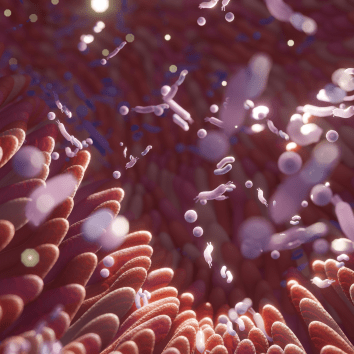

The time between the collection of a (stool) sample and its processing in a laboratory has a...


